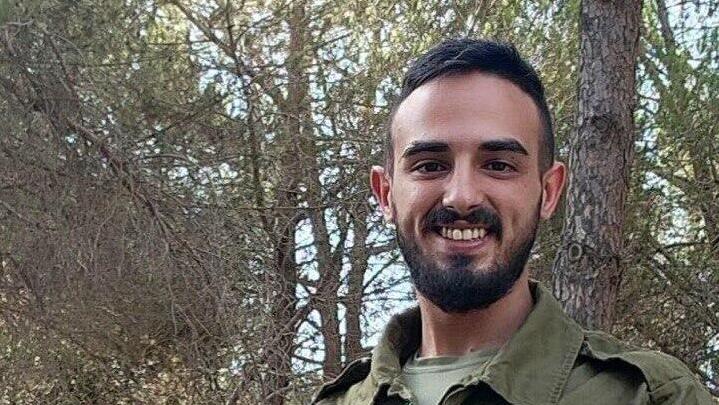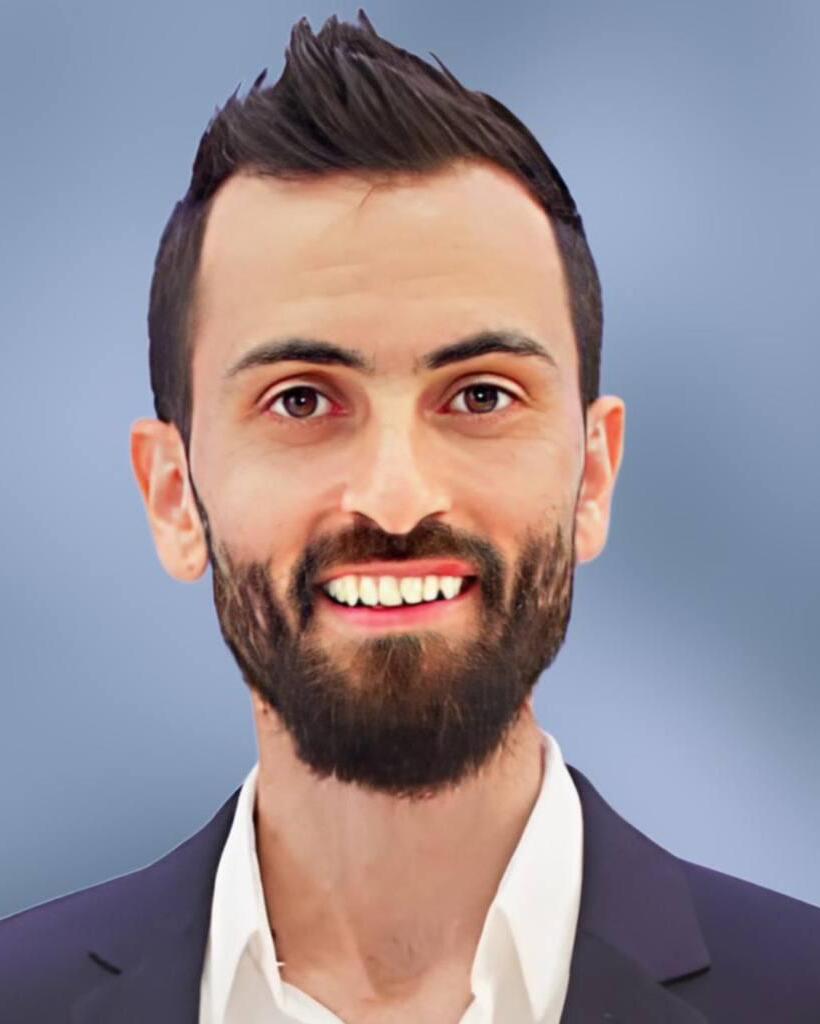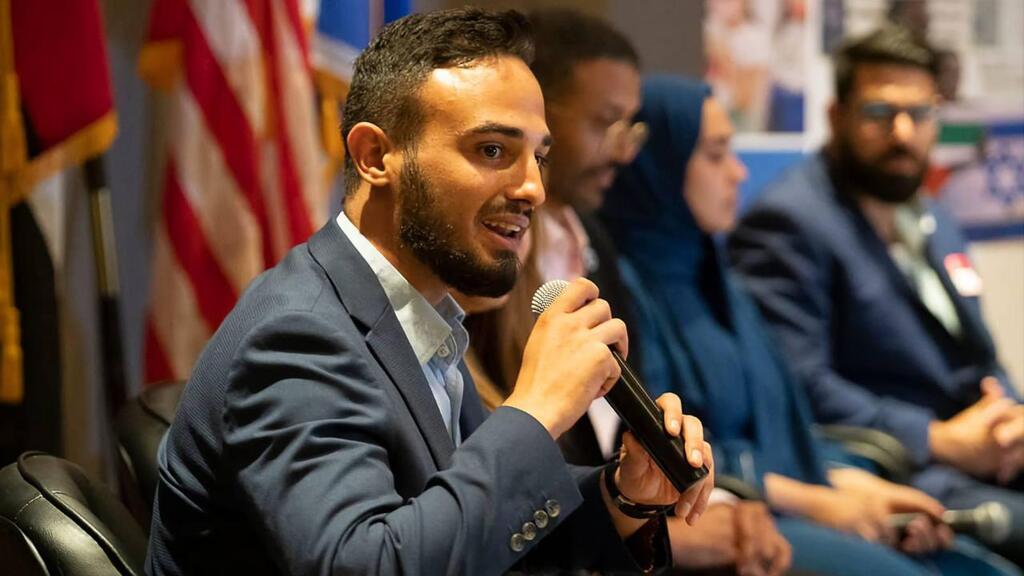Getting your Trinity Audio player ready...
During the Swords of Iron war against Hamas, more and more Arab-Israelis who served in the Israel Defense Forces in a variety of roles were recruited to the reserves to lend a shoulder in the effort to inform the world, known as hasbara. They present the facts and the Israeli point of view to the world, especially to the Arab world. For some, this is a continuation of their civic activities.
More stories:
Yahya Mahamid, 26, from Umm al-Fahm, will report to the IDF Spokesman's Office on Sunday. The Israeli Arab who served in the 50th Battalion of the Nahal unit was recently recruited into the Arabic language spokesman's array, after proving in his civilian life that he knows how to speak for the state, and gained experience working with recognized Israeli and Jewish organizations.
3 View gallery


Yahya Mahamid, 26, from Umm al-Fahm, is currently serving in the IDF Spokesman's Unit
This will be the second time that Mahamid serves in the reserves as an IDF spokesman. "Although I did my regular service as a soldier, I prefer to serve where I am most useful. If they had told me that I was more useful at the front, I would have gone there," he says just before putting on his uniform again.
Mahamid knows exactly what he is getting himself into. In times of war when many false reports are spread, he understands the difficulty he faces in explaining the Israeli side to the Arab world. "The IDF spokesman understands fake news and how to fight it. It's a nuclear weapon being used against our flag. We, the crew of the barges, protect Israel because we are an iron dome in the cyberworld," he said.
At the time, Mahamid had no doubts about whether to enlist in the IDF, and the situation is the same now, when he was called to the reserves. "I grew up with an education against the Jewish people. I did not learn about the Holocaust, and in history we were taught that everything began in 1948. After I finished school, when I went out into the world, I found that I had the wrong upbringing. That's why I started my advocacy campaign in Arabic. I wanted to share with as many people as possible that there is fake news here that they repeat over and over again."
When he was 18 years old, it was not easy for Mahamid amid to enlist in the army. In Umm El Fahm, few people enlist, and Mahamid was looking for a way to contact the IDF so that they would know that he was interested in enlisting. The Arabs of Israel saw the horrors that took place on the first day of the fighting and realized that they could not support it.
Muhammad Kabiya, from a village in the Jezreel Valley, was recruited for the war by the Northern Command. In recent days, he became a network star after he was interviewed by the BBC network in Arabic, and stated that the terrorist attack by Hamas on October 7 is against Islam.
"This is not the first time I have been interviewed by the BBC, and I always assume that it will not be easy and that the interviewer will not be pro-Israel," he told Ynet and Yedioth Ahronoth. "But against all his questions I use my weapon - the facts. With them we always win because the truth is on our side."
3 View gallery


Muhammad Kabiya, from a village in the Jezreel Valley, was recruited for the war by the Northern Command
According to Kabiya, no one in his village has a problem with the fact that he is interviewed by Arab media and condemns Hamas. "I am a member of a fighting family. All my brothers enlisted and we will fight this terrorist organization. I also receive support from Israeli Arabs - of course there are a few who attack, but the majority are in favor. This is happening because what Hamas did that Saturday was shocking, and shocked the whole world. Forget that they also murdered Arabs there and this goes against everything in Islam and every basic human standard," he said.



